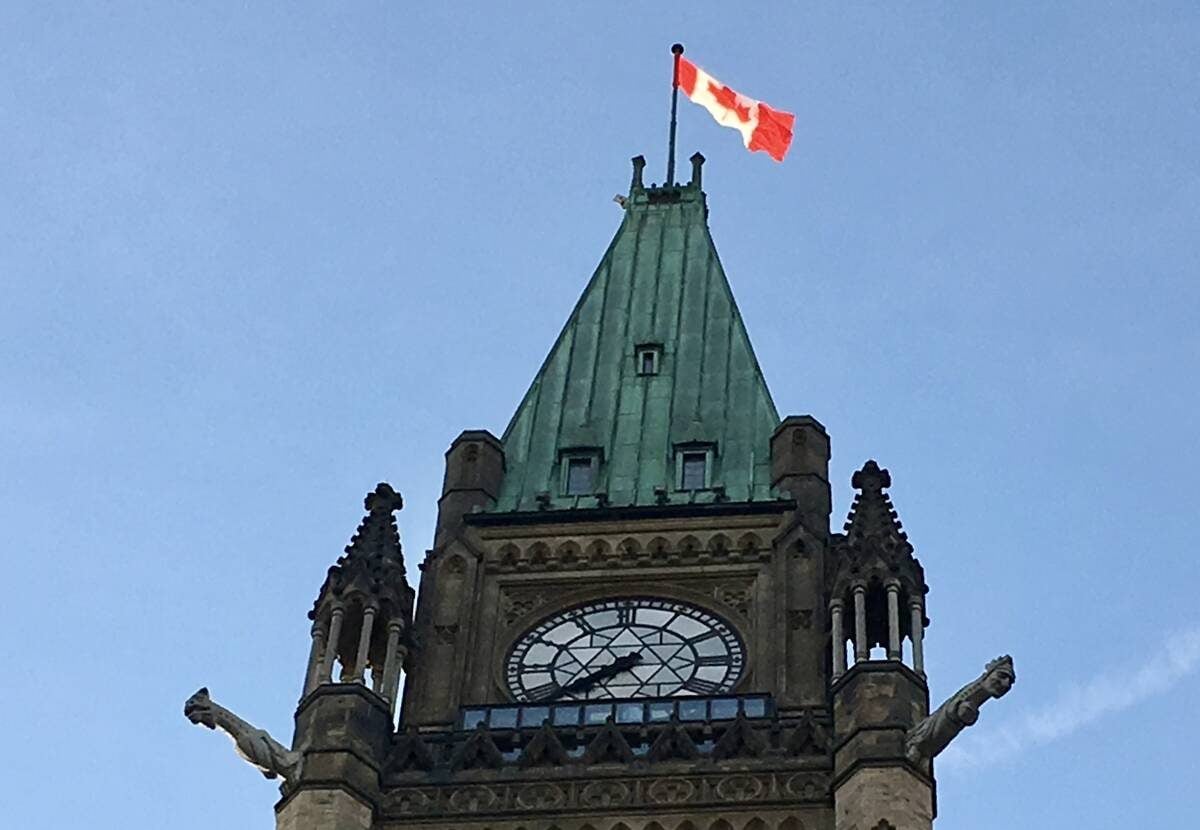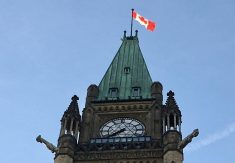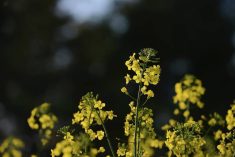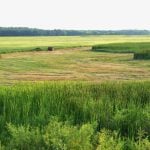Politicians should apply a “food lens” to decision-making to protect Canada’s agriculture sector amid trade tensions, some experts say.
This means considering how impacts of policy differently affects rural and urban areas, said Dr. Wayne Caldwell, a professor of rural planning at the University of Guelph.
“It not only impacts people in their lives, it impacts the economy of rural communities,” he said.
Caldwell said he has seen success with this approach at a local level. Ontario’s Huron County has used a rural lens for some time.
Read Also

Federal budget shows remaining disconnect between agriculture, policymakers, panelists say
Canada’s agriculture sector is still disconnected from policymakers in some ways, say panelists at a CAPI webinar
“It’s almost like a checklist of making sure that … we thought about, how do these decisions make economic and financial sense at a rural community level?”
Food lens top priority for some producers
The idea of a food lens for policy has gained traction among commodity groups. Fruit and Vegetable Growers of Canada (FVGC) placed it as its top priority in a 2025 election platform.
Yves Millette, CEO of financial service Farm Business Consultants (FBC) said he thinks many Canadians are finally realizing how important it is for Canada to protect its food sector — particularly as it becomes clearer Canadian and U.S. policy will no longer be aligned.
He pointed to recent trade disputes with China as an example of how seemingly unrelated policy decisions can saddle producers with the fallout.
“The attacks that we’ve put on Chinese (electric) vehicles in turn has affected agriculture, canola exports,” Millette said.
Lack of regional representation
The number of MPs representing agriculture and rural communities isn’t necessarily the problem when it comes to representation said Grace Skogstad, a political science professor at the University of Toronto.
The issue is that few are on the government side or in cabinet because most rural ridings vote Conservative.
“When you’ve got Liberal governments, the rural ridings are represented on the opposition bench … considerably more than they are on the government side of the house,” Skogstad said.
This is also a barrier to effective regional representation.
“The conundrum for Western farmers is that they are Conservative voters,” Skogstad said. “If (a Liberal government) doesn’t have any more than one MP out of Saskatchewan and two MPs out of Alberta and they’re both representing urban ridings, it’s difficult.”
Millette said it is important for regionality to be a consideration since different geography can mean very different living situations for rural residents and farmers.
“If we’re traveling around in southwestern Ontario, it is a very rich farm belt for Canada,” he said. “To get to a medium sized city, it’s just not a hard task, right? You could draw a circle and you’re probably within, you know, 30-45, minutes of a center.”
“When you’re in Saskatchewan, there’s essentially two centers,” he continued. “There’s a lot of isolation … how do I get my services? Do I have to go to the big city? Can I get them locally?”
Skogstad suggested the Senate could act as a solution to this issue of regional representation, giving Western Canada and its agricultural interests the voice they need, though this would largely informal.
Canadian senators affiliated with agriculture like Rob Black, Todd Lewis and Mary Robinson could act as these liaisons.
“I think that’s the best you could do, is hope that the ag minister, whoever he or she is, would really … try to make sure that they have a channel of communication with a person like that,” Skogstad said.
Powering Canadian self-sufficiency
Millette said agriculture’s ability to power Canadian self-sufficiency makes ensuring representation in government important.
“We are fortunate to have clean water and lots of land, and we’re able to create export markets for our products,” he said. “You have to protect those key industries that aren’t frankly beholden to big corporations that headquarters somewhere else.”
“Take the example of auto workers. Super important sector, but we’re not the masters of our own destiny when it comes to that. When it comes to agriculture, we are.”
“It’s really easy to get drowned out if you just do it on a population count perspective,” he said.
Caldwell argued that representation is important because agriculture is relevant to all Canadians.
“I will often ask the question when I’m doing a presentation … how many people like to eat? And with that question, virtually every hand in the room will go up,” he said, “which says to me that 100 per cent of the population has an interest in our agriculture and food system.”
“With the shenanigans south of the border, it just speaks to the importance of having an independent voice, an independent industry that supports the 100 per cent of us that like to eat.”
Taking a full view of the system
Skogstad said Canada could learn from the E.U. Farm to Fork strategy, which takes a full view of the food system and tries to put it on a more sustainable path.
“It extends to the upstream. It extends to the downstream. It pays quite a lot of attention to consumers,” she said.
“You could argue that what we’ve got when we’ve got agriculture policy, even though it’s called Agriculture and Agri-Food Canada, by and large it … focuses on agriculture production.”
“You take a food system lens to this, then agriculture is just one part of that.” She said this would allow for a more fulsome view of alternate modes of production and rural communities.















